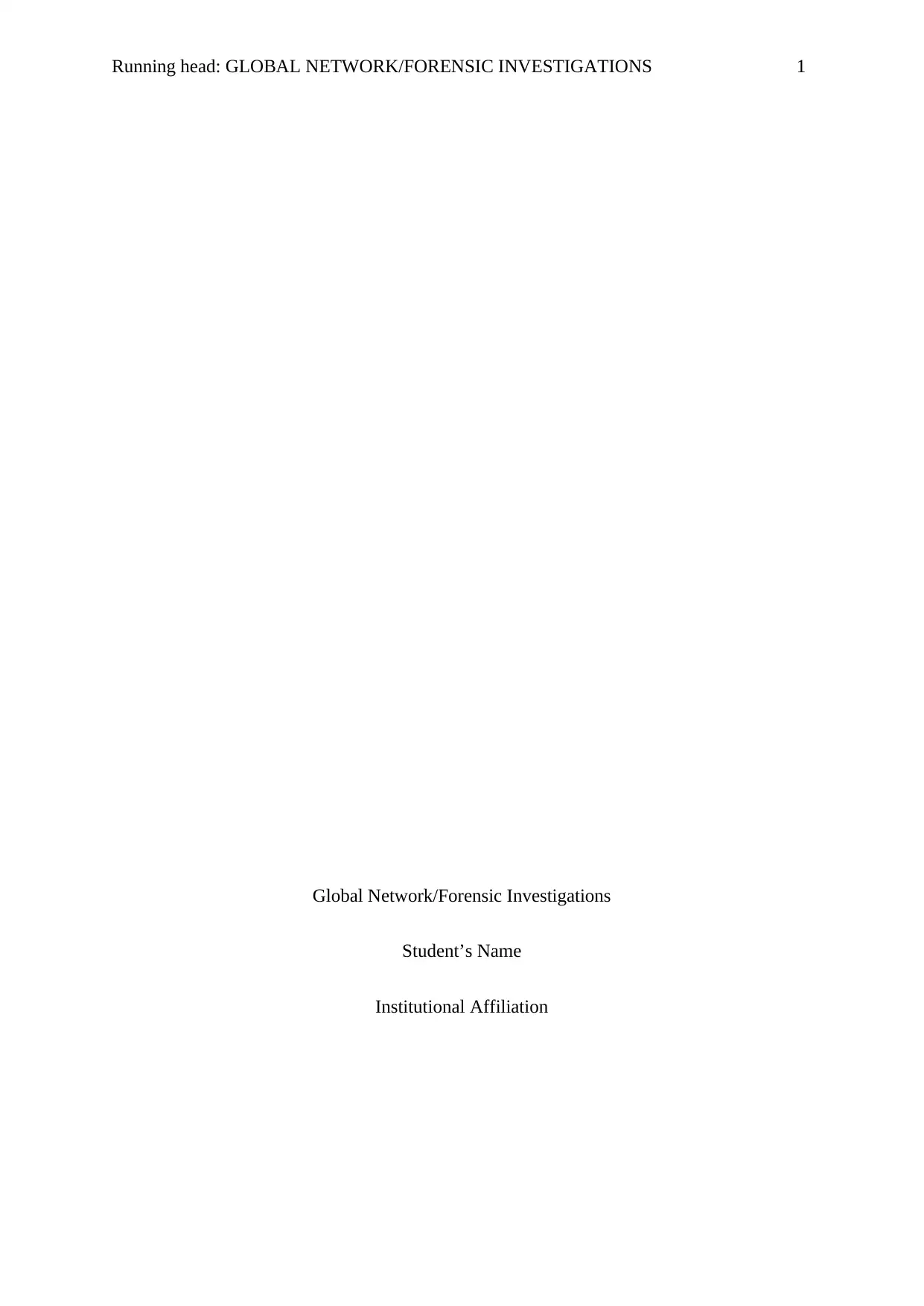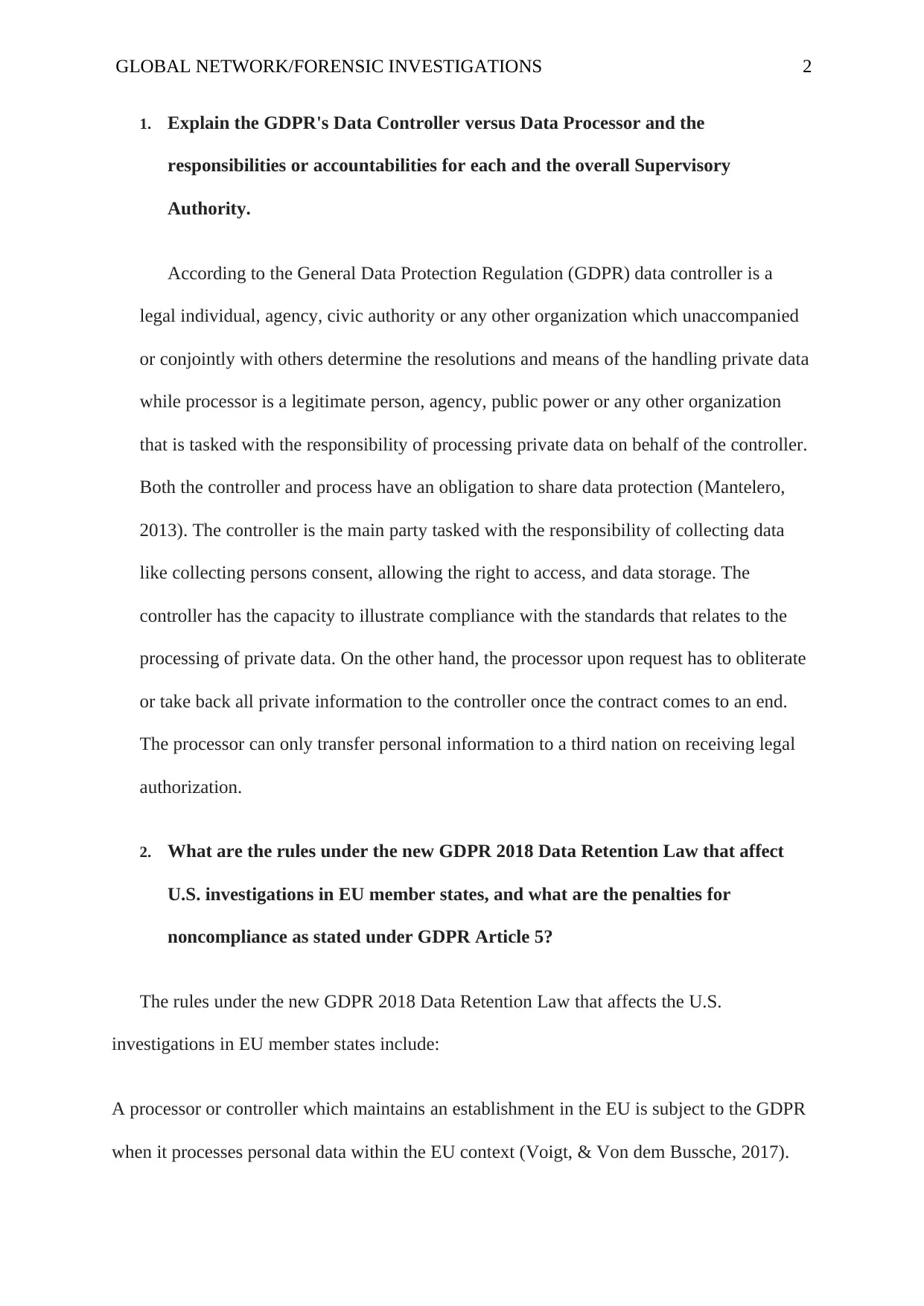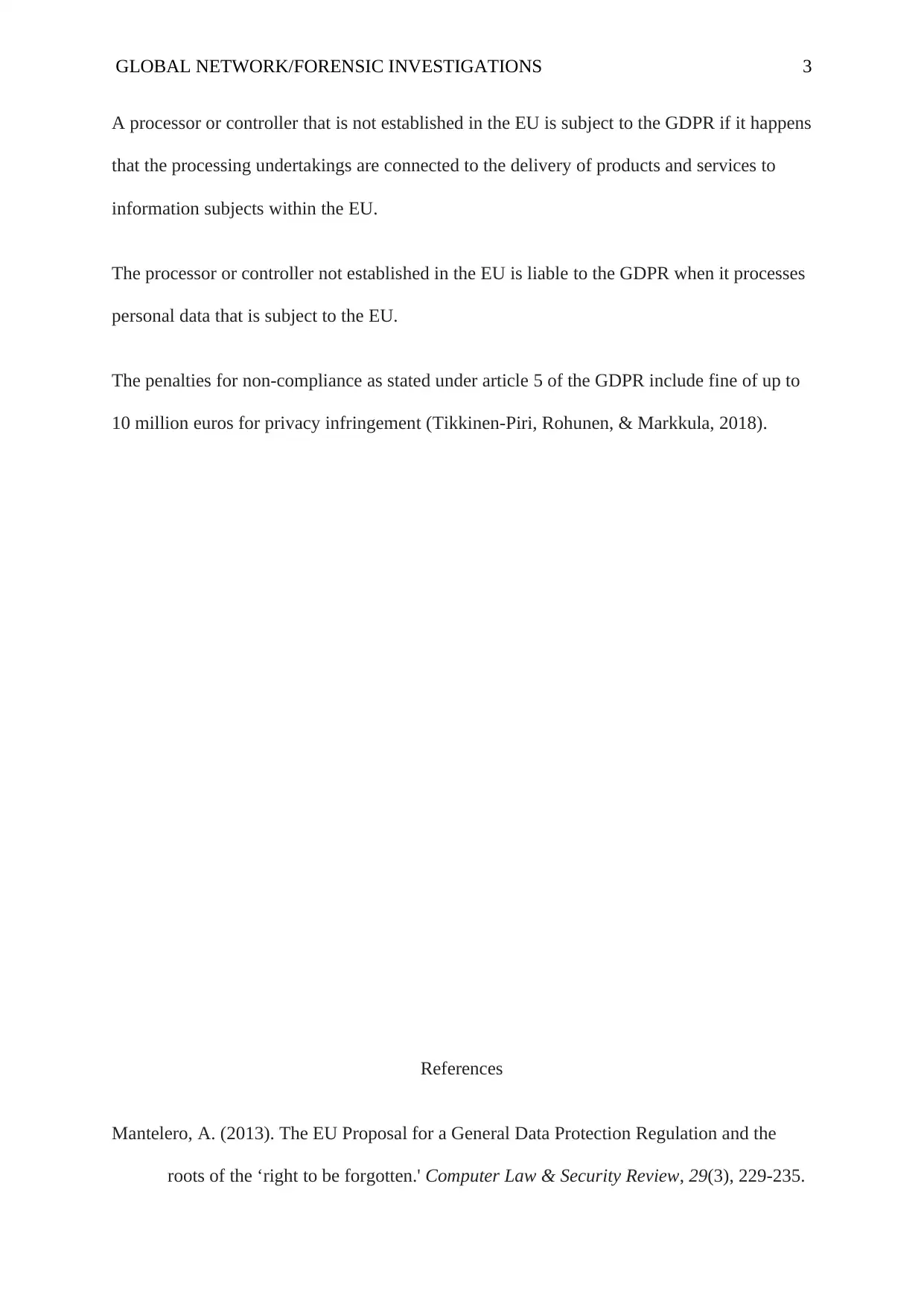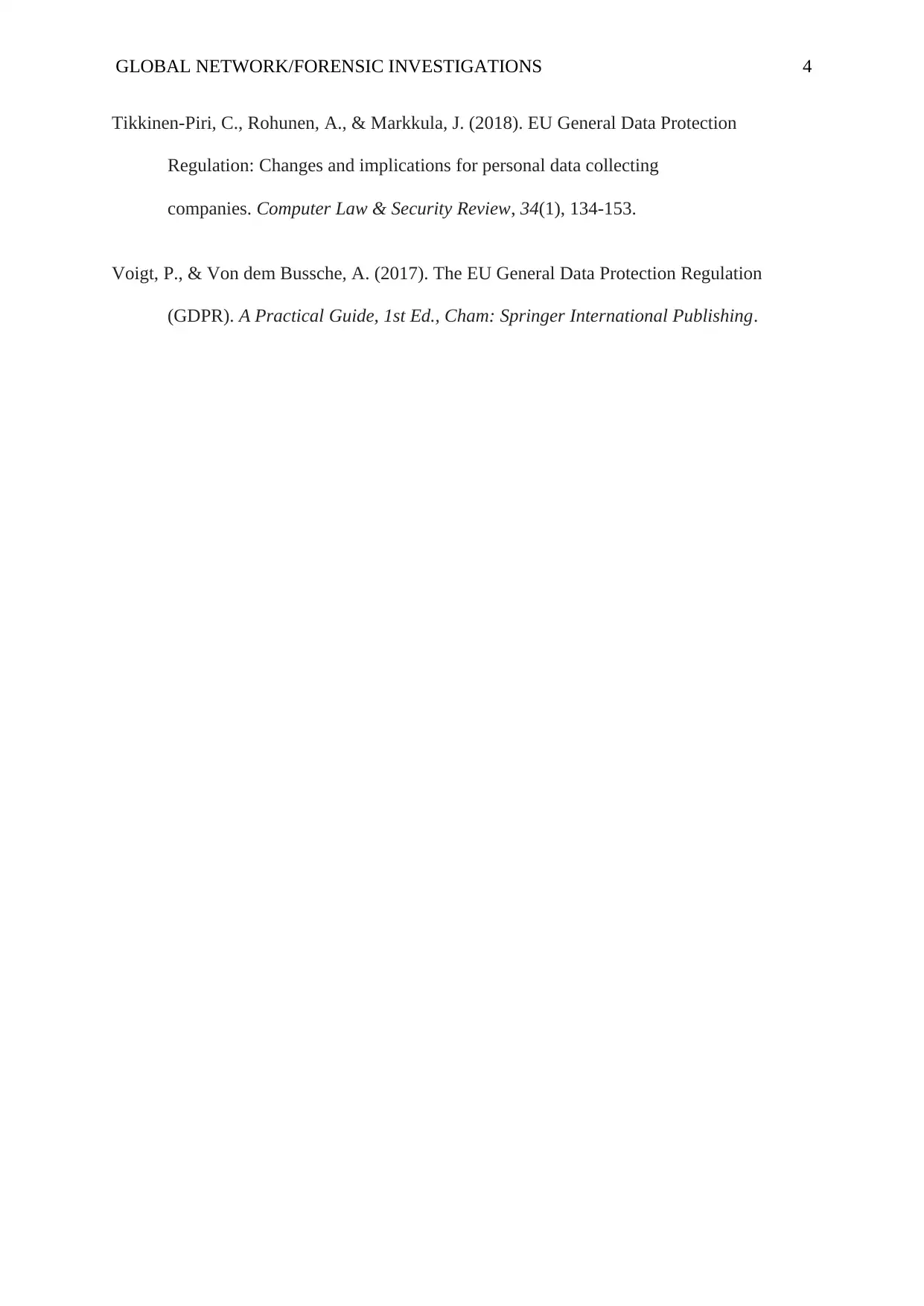GDPR's Impact on U.S. Investigations in EU Member States
VerifiedAdded on 2023/04/07
|4
|468
|477
Homework Assignment
AI Summary
This assignment delves into the General Data Protection Regulation (GDPR), specifically examining the roles and responsibilities of data controllers and data processors. The solution clarifies the distinctions between these two entities, highlighting their obligations concerning data handling, consent, and compliance with data protection standards. The assignment also addresses the GDPR's data retention laws and their implications for U.S. investigations conducted within EU member states. It outlines the rules governing data processing and the penalties for non-compliance, as stipulated under GDPR Article 5, including potential fines for privacy infringements. The analysis emphasizes the importance of adhering to GDPR guidelines to ensure the legality of data processing activities, especially in the context of international investigations.
1 out of 4











![[object Object]](/_next/static/media/star-bottom.7253800d.svg)